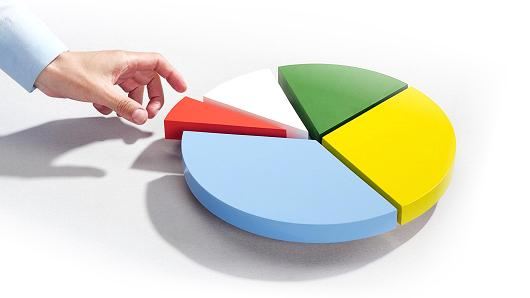
This is a guest post by: Andrew Bezen.
Why have ETFs become popular over the past few years?
Exchange Traded Funds, popularly known as ETFs are quite a range of investments nowadays. ETFs can be regarded as a basket of stocks that track indices, stocks, commodities, bonds, industries, and even currencies. They provide a low-cost, diverse and flexible way to invest in a variety of stocks all under one umbrella.
ETFs are close cousins to Index Funds and Mutual Funds. However, ETFs have some unique characteristic features over mutual funds and stocks. It is evident that most investors tend to prefer mutual funds when it comes to investment choices. However, this trend seems to be changing.
Surprisingly, few people know about ETFs and the investment potential that they carry. This is one of the reasons we expect ETFs to continue growing in popularity over the next few years. It is also the same reason why mutual funds will remain a favorite of many novice investors.
The first ETF was launched by the State Street Global Advisors in 1993 in the U.S. ETFs were introduced at a later date in Europe (1999). Currently, there are over 1,400 ETFs that an investor can choose from. These ETFs are worth more than $1.5 trillion in assets.
The first ETF to be introduced into the market was the $SPY and tracked the S&P 500. This is an index that focuses on the market capitalization of some of the largest companies that trades on the NYSE. Other popular ETFs include the $DIA that tracks the Dow Jones Industrial Average, and also the $QQQ tracking the Nasdaq 100 and $IWM that tracks the Russell 2000.
Just like mutual funds, ETFs have their drawbacks as well. However, it is the many advantages of ETFs over mutual funds that make it a popular investment choice for many investors. Here are the major reasons why ETFs are becoming more popular by the day.
They enable short selling and trading on margin .
An investor can buy an ETF and sell it at any time of the day during the trading hours. Selling it when you do not own it to profit from price going down is known as short-selling. Depending on the liquidity of the market, the value of an ETF can fluctuate intra-day, just like with stocks. Thus, it is possible to buy an ETF at a lower price and sell it at a profit a few hours later. For instance, you can purchase an ETF that was trading at $40 at 10:00 am and sell it at $42 at 12:00 pm on the same day. Mutual Funds can not be bought and sold intraday, they do not have intra-day quotes and allow end of day buying and selling only.
The idea of short selling has continued to make ETFs more popular than mutual funds and stocks. Besides, Exchange Traded Funds can be traded on margin, unlike mutual funds and stocks. On the same note, it is also important to note that ETFs are more transparent than stocks. Thus, an investor can track the performance of their investment at any time of the day.
ETFs provide exotic trading opportunities
Many investors are jumping ship to ETFs since it allows them to trade on in a market that is usually out of reach. For instance, investors in the U.S can pick one among the many foreign country emerging market ETFs. Nowadays, it is even possible to get Marijuana ETFs. So, there is a wider variety for investors to choose from.
ETFs are cheaper
You can buy into an index without having to buy every stock in an index individually. Every investment opportunity has its cost implications. Investors will always go for investment with the lowest administration cost. ETFs are cheaper to buy than stocks. For instance, it is cheaper to purchase an ETF that tracks ten stocks than buy ten individual stocks. Managing the ten stock positions is not only cumbersome, but it is also costly.
Diversity
ETF gives you an opportunity to own little slices of many companies rather than investing in a single stock. For instance, consider an investor purchasing a technology ETF. They can purchase ETFs from multiple technology companies such as IBM, Microsoft, Cisco, Intel and Apple among other large players in the industry. Say Microsoft introduces a new product that is not well received by the market. Microsoft’s stock could plunge up to 10 percent in a single day. However, an investor’s ETF will not go down at all or minimally since they have limited exposure to Microsoft.
You can follow Andrew Bezen on twitter @andrew_bezen
I agree with Andrew’s post. ETFs are one of my favorite trading vehicles.